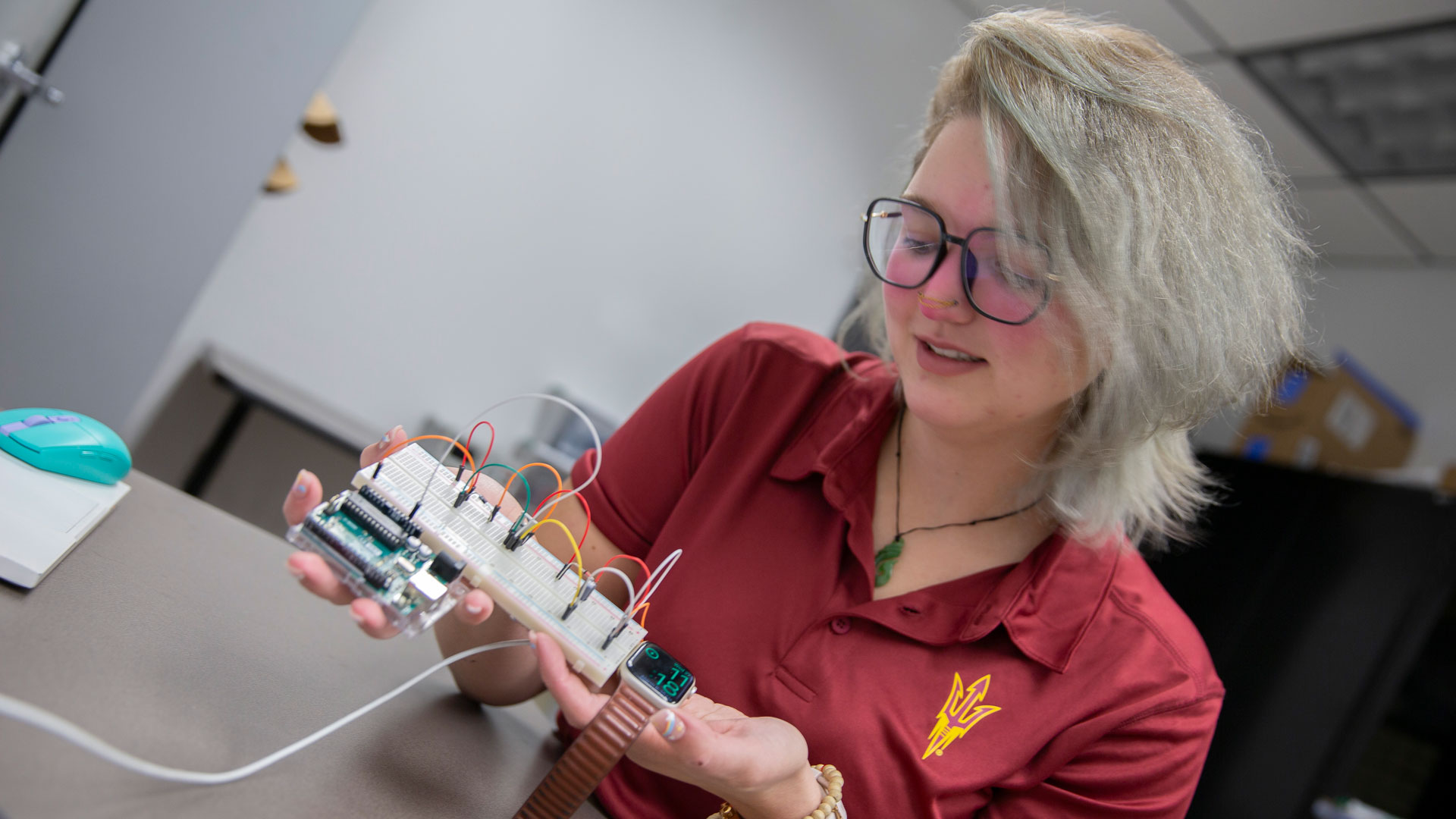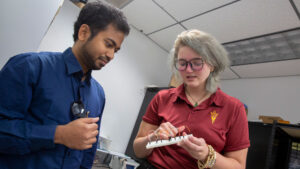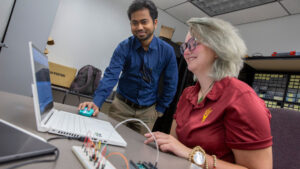Gwen Eging
Engineering (robotics)
Hometown: Chardon, Ohio, United States
Graduation date: Spring 2026
Additional details: Honors student, Transfer student
FURI | Fall 2023
Kinetically Charged Batteries — Development and Optimization
Harnessing kinetic energy from everyday movement can revolutionize various fields, from prosthetics to smartphones. This project focuses on effective optimization and the amplification of kinetically charged batteries, unlocking the possibility of extended use of devices between charges. The setup size was a constraint on the end product, as it needs to be portable and versatile enough for integration into devices and the on-the-go lifestyle of users. A 1.5-volt kinetically charged battery was chosen to be amplified and yield 5 volts. A buck booster step-up circuit was chosen for the task as the component count is minimal which led to a small circuit board. The future development of this concept includes getting the 1.5 volts amplified enough to extend the use time of prosthetics, insulin pumps, communication devices, and other wearable technology.
Mentor: Ayan Mallik
Featured project | Fall 2023

Gwen Eging, a sophomore transfer student majoring in engineering with a concentration in robotics, is participating in FURI under the mentorship of Ayan Mallik, an assistant professor of engineering. In her research, Eging is exploring the development and optimization of kinetically charged batteries, which use movement to gain an electrical charge, for use in a wide range of applications from prosthetic devices to smartphones.
What made you want to get involved in FURI?
During my first semester at ASU, I was in Professor Mallik’s Electrical Engineering Fundamentals class. It was in that class that I learned about FURI from him and a classmate, both of whom encouraged me to participate in the program. I was uncertain about it because I had just started my ASU career, and my technical knowledge I felt was behind my peers’. I jotted down a note in the margin of my notebook in one of [Professor Mallik’s] lectures about amplifying voltage and kinetically charged batteries. I told myself that come spring if he had not signed on as a mentor to anyone else’s FURI project, I would ask him to be my mentor. Fast forward to the spring semester and he indeed had not agreed to mentor any undergraduate students for the upcoming fall. I proposed my idea, and he told me he had not worked in that space before but would be willing to mentor me in the fall semester.
How will your engineering research project impact the world?
Through mass social media consumption, I learned that prosthetics can die at inopportune moments throughout the day, leaving the user stuck. By utilizing kinetically charged batteries the user could prolong the device’s life to last the whole day. Kinetically charged battery amplification and optimization is not just limited to prosthetic devices — it has the potential to be used in communication devices, GPS devices, insulin pumps, heart monitors and even your smartphone. This will not replace charging the device entirely but should be able to prolong the use of that single tethered charge.
How do you see this experience helping with your career or advanced degree goals?
My career goal is to design and create robotic medical assistive devices that combine a splash of fashion with robotics. As part of this objective, I am focused on optimizing the power supply of devices because of the positive impact that would have on user experience and quality of life. Additionally, I seek out supplemental projects in fields I have little to no knowledge of but that can enhance my degree path by aligning with my career goals. It offers a venue and the motivation to learn the material and really expand my knowledge, making me a better engineer.
What is the best advice you’ve gotten from your faculty mentor?
The best advice given to me by my mentor is not anything he said — it is what he has done. Although the field of kinetically charged batteries falls outside of his active research areas, he did not turn me away when I proposed it as my FURI topic. He listened to my ideas and then guided me through the project’s different steps and processes. I have learned a great deal from this approach and plan to use it in other areas of my life.
Why should other students get involved in FURI?
FURI gives you the opportunity to get hands-on lab and research experience while pursuing a topic of interest that may not fall within the scope of your classes. Not many undergraduate students get the opportunity to pursue their own research. Thus, it is a valuable experience for any college student.



